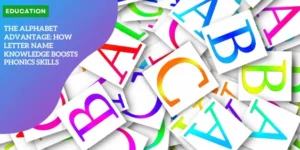Understanding the Summer Slide: How Reading Prevents Academic Loss During School Breaks
What is the Summer Slide?
Definition and Primary Impacts
The term “summer slide” refers to the decline in academic skills that students often experience during extended school breaks, particularly summer holidays.
This phenomenon primarily affects literacy and numeracy skills, critical areas that are foundational to a student’s overall academic success.
During summer breaks, students may not engage in educational activities as regularly as they do during the school year.
This lack of consistent practice can lead to a decline in their reading and mathematical abilities.
Research indicates that students, especially those in primary school, are susceptible to the summer slide.
The skills they worked hard to develop can regress, setting them back several months academically by the time they return to school in the fall.
Impact on Literacy and Numeracy
The summer slide is particularly pronounced in literacy and numeracy, as these skills require continuous practice to maintain and improve.
Without regular reading and engagement with mathematical concepts, children’s proficiency in these areas can diminish significantly.
For instance, a child who stops reading daily might find that their previously expanded vocabulary, comprehension skills, and familiarity with various text structures decline.
Similarly, without consistent practice, numerical skills like addition, subtraction, and more complex problem-solving techniques can lapse.
Students in primary school are in a critical period of cognitive development where foundational skills are solidified.
If these students experience an academic regression over the summer, it can affect their confidence and readiness for the new school year.
This setback can lead to a cycle of catching up that many educators find challenging to overcome once classes resume.
Common Among Primary School Students
Primary school students are especially vulnerable to the summer slide for several reasons.
Firstly, younger students are often less likely to engage in self-directed learning activities without guidance from parents or educators.
Additionally, the structured environment of the school year provides consistent learning opportunities that may not be available during the summer.
Understanding the summer slide is crucial for parents, educators, and communities that aim to support children’s continuous learning.
By recognizing the potential for skill regression during extended breaks, proactive measures can be taken to mitigate its effects.
Recognizing the need to address this issue, we can begin discussing effective strategies and resources available to ensure children maintain and even enhance their academic skills during the summer months.
 Young people should play, but without neglecting their studies
Young people should play, but without neglecting their studies
The Importance of Summer Reading
Preventing Loss of Academic Progress
Summer break is a time for fun and relaxation, but it’s also a crucial period to maintain the literacy and numeracy skills students have worked hard to build during the school year.
Regular reading during this break is one of the most effective ways to prevent the “summer slide.”
By making reading a consistent part of summer activities, students can continue to practice and reinforce their skills, ensuring that they don’t lose valuable progress.
Maintaining Skills Gained During the School Year
The skills acquired during the school year can quickly diminish without continued practice.
Engaging in regular reading helps students maintain their proficiency in various areas such as vocabulary, comprehension, and critical thinking.
Consistent reading not only reinforces these skills but also keeps them sharp for when school resumes.
This steady practice is paramount for primary school students who are still developing their foundational literacy and numeracy abilities.
Exploring New Books and Genres
Summer reading is not just about retaining academic skills; it’s also an excellent opportunity for students to discover new books and genres.
With the freedom to choose what they read, children can explore a wide variety of literature that piques their interest, whether it’s fantasy, adventure, science fiction, or non-fiction.
This exploration can foster a lifelong love of reading, making it a pleasurable activity rather than a chore.
To make the most of summer reading, it’s beneficial to integrate it into everyday activities.
Whether lounging at the beach, relaxing by the pool, or winding down at home, setting aside a dedicated reading time can make the experience enjoyable and rewarding.
Parents can set an example by reading themselves and sharing the experience with their children.
Local libraries offer a wealth of resources, including free access to audiobooks, eBooks, and personalized recommendations from librarians.
These resources can be particularly useful for families on the go.
For instance, listening to audiobooks during a road trip can be a fun way to keep everyone entertained while also promoting literacy.
Summer reading not only combats the summer slide but also enriches children’s lives by keeping their minds active and engaged.
By incorporating reading into the summer routine, parents can support their children in maintaining their academic progress and discovering the joy of exploring new worlds through books.
Practical Strategies for Parents
Integrate Reading into Holiday Activities
Making reading a consistent part of your child’s summer holiday routine can be both fun and effective in combating the summer slide.
You don’t need to confine reading to the home.
Instead, take books wherever your holiday adventures take you.
Whether you’re lounging on the beach, relaxing by the pool, or enjoying quiet moments at home, dedicating time to read together helps maintain and even enhance literacy skills.
Engage in shared reading experiences that allow family members to bond over stories and discussions about the books.
These experiences not only make reading a tradition but also foster a love for books in your children.
As Jade Arnold, a literacy consultant, points out, integrating reading into daily holiday activities can significantly improve literacy skills in a fun and engaging manner.
Utilize Local Libraries for Free Resources
Local libraries are treasure troves of free resources that can assist in keeping your child’s reading skills sharp over the summer.
Libraries offer a variety of materials, from physical books to digital resources such as audiobooks and eBooks.
Take advantage of tailored recommendations from librarians who can suggest age-appropriate and interest-specific titles for your children.
Audiobooks are an excellent option, particularly for family road trips.
Listening to stories together can be a bonding experience, and it keeps everyone entertained while contributing to literacy development.
For example, many libraries have selections ideal for long car rides, offering a wide range of genres and authors.
Engage in Shared Reading Experiences as a Family
Family reading time can be one of the most rewarding ways to keep your child engaged in literacy activities.
Here are a few strategies to try:
- Designate a Daily Reading Time: Set aside a specific time each day for the family to read together. This could be in the evening before bed or during a leisurely afternoon.
- Diverse Reading Materials: Keep a variety of reading materials available, including books, magazines, and even comic books. The key is to make reading enjoyable and not a chore.
- Discuss What You Read: Talk about the stories, characters, and ideas in the books. This not only enhances comprehension but also makes reading a more interactive and enjoyable experience.
The commitment to shared reading strengthens family bonds while reinforcing the importance of literacy.
Reading as a family sets a positive example and can ignite a lifelong passion for books in your children.
Summer reading is more than just a tool to prevent academic loss; it’s a way to foster a love for books and continuous learning.
Making reading a pleasurable and integral part of your holiday routine can leave lasting benefits that go beyond just the summer months.
As families make these shared reading experiences a tradition, they lay down the foundation for everlasting literary interest and acumen.
Supporting Programs and Resources
Premier’s Reading Challenge for NSW Students K-10
The Premier’s Reading Challenge is an outstanding initiative available to all New South Wales (NSW) students from kindergarten through to year 10.
The challenge significantly motivates children to read by encouraging them to explore a variety of literature.
Students can include the books they read over the summer holidays in their online reading records when the challenge reopens on February 24, 2025.
Participating in the Premier’s Reading Challenge can make reading feel like an exciting game rather than a school task.
It also provides a wide selection of books to choose from, helping children discover new genres they may not have considered before.
By engaging in the challenge, students can maintain their reading skills over the break and return to school prepared and confident.
Local Library Resources and Personalized Recommendations
Local libraries are a treasure troves of free resources that can help combat the summer slide.
One of the best ways to keep children reading over the summer is to utilize the library’s extensive collection of books, audiobooks, and eBooks.
Libraries also offer personalized reading recommendations from knowledgeable librarians who can tailor suggestions based on your child’s interests and reading level.
Moreover, many libraries host summer reading programs and activities designed to engage young readers.
These programs often include reading challenges, story times, and book clubs that can make reading a fun and social activity for children.
Parents can take advantage of these resources to help instill a love of reading in their kids while also preventing the summer slide.
Audiobook Options for Family Road Trips
If you have a road trip planned for the summer holidays, audiobooks can be an excellent way to keep the entire family entertained while also fostering literacy skills.
Listening to audiobooks together allows families to enjoy shared storytelling experiences and discuss the stories they hear, which can enhance comprehension and critical thinking skills.
Libraries typically offer a wide range of audiobooks for children of all ages.
For a successful road trip, choose audiobooks that are engaging and appropriate for your child’s age and interests.
Whether it’s a thrilling adventure, a humorous tale, or an educational story, audiobooks can turn travel time into a valuable reading session.
By taking advantage of programs like the Premier’s Reading Challenge, leveraging local library resources, and incorporating audiobooks into family travels, parents can effectively support their children’s learning throughout the summer.
Engaging children in diversified reading experiences will not only help them maintain their academic skills but also nurture a lifelong love of reading.
Age-Appropriate Reading Recommendations
Keeping children engaged in reading over the summer can be a rewarding and educational experience.
Tailoring book selections to their age and interest can help keep the momentum going.
Here are some recommended titles for different age groups that should make reading a delightful part of your child’s summer.
For Preschoolers and Kindergarten Starters
Preschoolers and those about to start kindergarten are at a crucial stage for building foundational literacy skills.
Choosing engaging and relatable books can prepare them for school and foster a lifelong love for reading. Here are some excellent picks:
- Starting School by Jane Godwin & Anna Walker
This book gently addresses the anxieties and excitement of beginning school, making it a perfect read for children on the brink of this significant milestone. - The Pigeon HAS to Go to School! by Mo Willems
Mo Willems’ beloved character, The Pigeon, brings humor and charm to the idea of starting school, helping kids understand that they’re not alone in their worries.
For Ages 5-8
Children in the early years of primary school are expanding their reading abilities and developing their interests.
Selecting books that combine fun and educational content can stimulate their imagination and critical thinking skills. Consider these recommendations:
- Wombat Stew by Marcia K. Vaughan & Pamela Lofts
A classic Australian story featuring engaging rhymes and illustrations, perfect for young readers who enjoy a bit of suspense and humor. - The School of Monsters series by Sally Rippin & Chris Kennett
This beginner reader series is both entertaining and educational, with relatable characters that navigate the joys and challenges of school life.
For Ages 9-12
As children grow, their reading preferences become more diverse and sophisticated. Books that offer adventure, emotional depth, and moral lessons can be both engaging and enriching. Here are some highly recommended titles:
- The Wild Robot by Peter Brown
An intriguing story about a robot’s survival in the wilderness, balancing action with deeper themes about the environment and community. - Wandi by Favel Parrett
Based on a true story, this book tells the incredible tale of an Alpine Dingo, offering both excitement and invaluable knowledge about wildlife conservation.
For Teenage Boys and Girls
Teenagers often have varied tastes and might be drawn to genres ranging from romance to mystery to dystopian adventures.
Selecting compelling stories that resonate with their experiences can maintain their interest in reading.
- The Road to Winter by Mark Smith (for teenage boys)
This gripping dystopian adventure appeals to teenage boys with its action-packed narrative and relatable protagonist facing challenges in a post-apocalyptic world. - Friday Barnes: Girl Detective by R.A. Spratt (for teenage girls)
Blending mystery, humor, and wit, this series featuring a young detective is perfect for teenage girls who enjoy solving puzzles and uncovering secrets.
Encouraging your child to read age-appropriate books over the summer not only helps prevent the “summer slide” but also opens up new worlds and ideas.
Whether you’re using public library resources or participating in reading challenges, like the Premier’s Reading Challenge, engaging your children in reading can be both effective and enjoyable.







